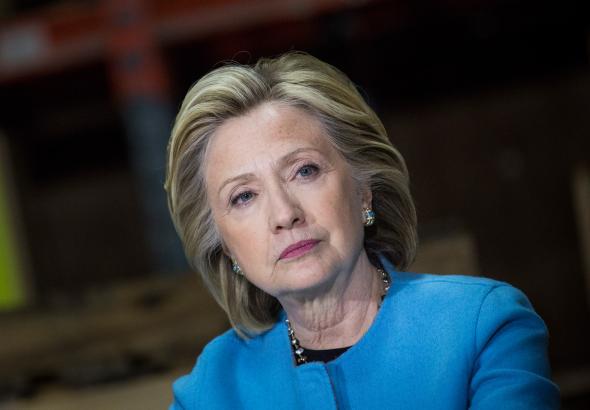The renewed fuss over Hillary Clinton’s defense of a man accused of child rape in 1975 is a familiar, if politicized, version of what criminal lawyers call the “cocktail party question.” We hear it all the time: “How can you represent those people?” Those of us who are feminists and criminal defense lawyers are sometimes asked a variation of the question: “How can you represent rapists?”
Clinton has pointed out that she took the case at the request of both a prosecutor and judge. As a matter of professional ethics, Clinton did the right thing in accepting a court appointment to represent an indigent charged with a repugnant crime, and her representation is not an endorsement of the client’s conduct. As Clinton told the British online network Mumsnet, “I had a professional duty to represent my client to the best of my ability, which I did.”
Clinton could have offered plenty of other reasons for taking the case: Able defense lawyers are essential to the proper functioning of the adversary system, to ensure equal access to justice, and ultimately to protect all of our constitutional rights. She could have also pointed to Justice Byron White’s explanation of the defense lawyer’s unique ethical duty to “defend his client whether he is innocent or guilty … [and] put the state’s case in the worst possible light, regardless of what he thinks or knows to be the truth.”
But none of this answers how Clinton, a feminist and children’s advocate, could feel OK about zealously defending a man accused of raping a child. According to press accounts, the client specifically asked for a female lawyer, perhaps seeking a strategic advantage by having a woman vouch for him over a 12-year-old girl.
The truth is that few criminal lawyers, female or male, enjoy rape cases. Even Atticus Finch in To Kill a Mockingbird—acting on behalf of an innocent black man accused of raping a white woman—derived “no pleasure” from cross-examining complainant Mayella Ewell. He “sat with his head down” when Mayella walked by him “glaring” with “hatred.”
I am a woman, feminist, and career indigent defense lawyer who, both as a public defender and clinical law professor, has represented many men accused or convicted of sexual assault. These cases are not my favorite part of the job, but I have found a way to do it that is consonant with my feminism.
Feminists have a long history of working on behalf of the disadvantaged and marginalized. We take a critical view of law and recognize that it can perpetuate inequality. The disproportionate number of poor and nonwhite people caught up in the criminal justice system ought to be disturbing to anyone concerned about fairness and equality. So should the especially harsh and not entirely rational punishment meted out to a wide range of sex offenders—from rapists and pedophiles to public urinators, downloaders of pornography, and young people in consensual relationships with minors nearly their age.
Moreover, a “zealous defense” is not an individual lawyer’s prerogative, reserved only for the factually innocent or for recognizably feminist causes such as battered women who kill abusive husbands or drug-addicted pregnant women prosecuted for endangering their fetuses.
Because of her exemplary pretrial advocacy, the case did not go to trial and Clinton did not have to face the alleged victim. This was probably a good thing for her client, as Clinton seems to have felt ambivalent about the case. She said in an interview that she initially resisted the appointment, and she made a sardonic reference to the accuracy of polygraph tests—because her client managed to pass one.
I wish she had kept those feelings to herself to protect lawyer-client confidentiality.
But Clinton should not have to apologize for her defense of her client, or for feeling proud of the outcome: a plea to a lesser charge and short jail sentence. She is being taken to task for “laughing” about the case in an interview from the 1980s, when she was first lady of Arkansas. But nowhere in that interview does she laugh at the alleged victim. She laughs when she describes her client’s polygraph results and prosecutors bungling the case by destroying evidence. This is familiar criminal defense gallows humor.
According to press accounts, the case fell apart because of a combination of factors: contradictory statements by the complainant, prosecutorial incompetence, and “aggressive” defense advocacy. But it is wrong to call Clinton’s thorough investigation of the case, including sending evidence to a forensics expert, overly aggressive. Likewise, developing a viable defense theory—that a troubled child might not be a credible witness—is not at all improper. Clinton was right to pursue her client’s interest no matter the charge or her own misgivings. She understood that she could not be both lawyer and judge.
There is no contradiction in Hillary Clinton fighting for the rights of women and children and also ensuring that those accused of crime are well-represented.
